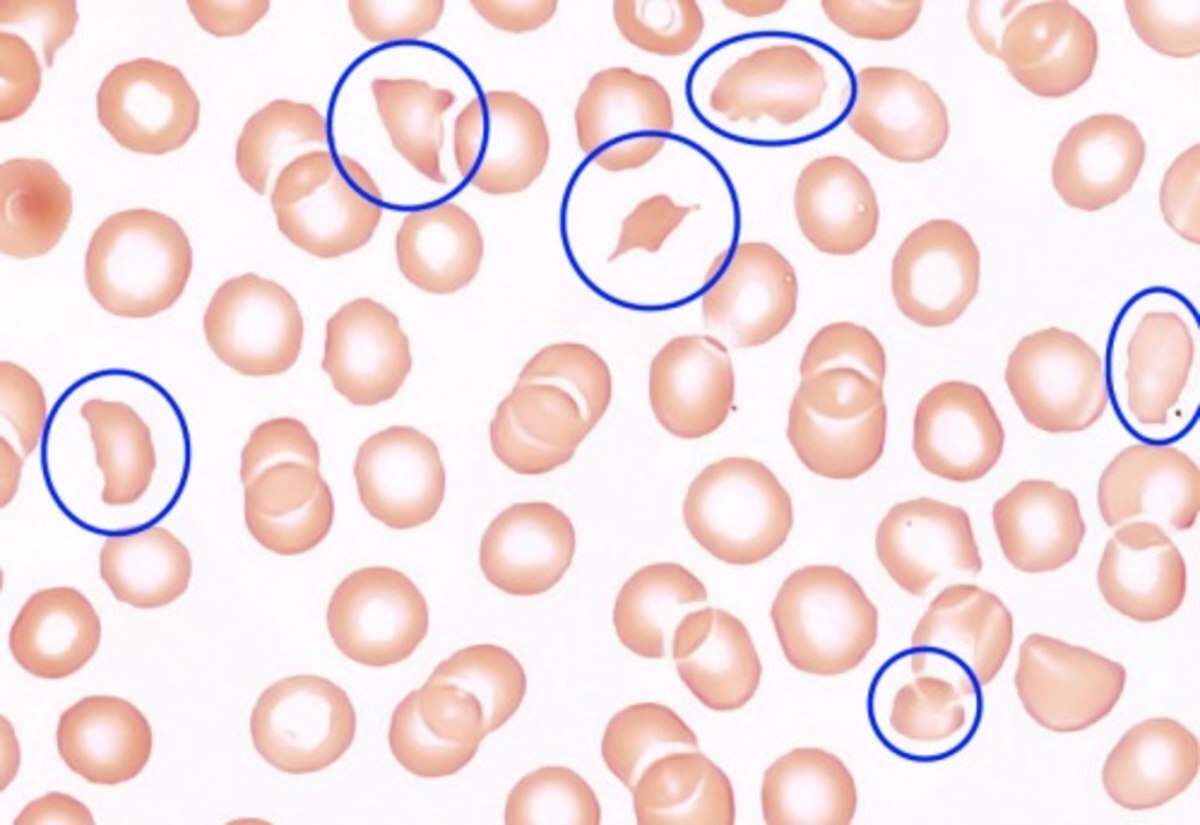
Upshaw-Schulman Syndrome is a rare genetic disorder that affects blood clotting. Characterized by a deficiency in the ADAMTS13 enzyme, this condition leads to the formation of small blood clots throughout the body. These clots can cause a variety of symptoms, including fatigue, jaundice, and neurological issues. Inherited in an autosomal recessive pattern, both parents must carry the gene for a child to be affected. Early diagnosis and treatment are crucial for managing symptoms and preventing complications. Understanding the nuances of this syndrome can help patients and families navigate the challenges it presents. Let's dive into 30 intriguing facts about this condition to shed light on its complexities.
Key Takeaways:
- Upshaw-Schulman Syndrome (USS) is a rare genetic disorder affecting blood clotting, causing symptoms like anemia and organ damage. Treatment involves plasma exchange and lifelong management, with ongoing research offering hope for new therapies.
- Understanding USS symptoms and diagnosis is crucial for effective management. Patients may experience fatigue, jaundice, and neurological symptoms, requiring regular plasma infusions and lifestyle adjustments. Ongoing research aims to improve treatment options and raise awareness.
What is Upshaw-Schulman Syndrome?
Upshaw-Schulman Syndrome (USS) is a rare genetic disorder affecting blood clotting. It is characterized by a deficiency in a specific enzyme, leading to various health complications. Here are some intriguing facts about this condition.
-
USS is a genetic disorder: It is inherited in an autosomal recessive manner, meaning both parents must carry the defective gene for a child to be affected.
-
Deficiency in ADAMTS13 enzyme: The syndrome results from a deficiency in the ADAMTS13 enzyme, which is crucial for blood clotting.
-
First described in 1978: USS was first identified by researchers Upshaw and Schulman in 1978.
-
Symptoms can be severe: Symptoms include anemia, thrombocytopenia (low platelet count), and organ damage due to blood clots.
-
Neonatal onset: Symptoms often appear in newborns or early childhood, making early diagnosis critical.
-
Relapsing-remitting course: The condition can have periods of remission and relapse, where symptoms worsen and then improve.
-
Plasma exchange therapy: One of the primary treatments involves plasma exchange to replace the missing enzyme.
-
Lifelong condition: USS is a chronic condition requiring ongoing management and treatment.
-
Rare disorder: It is extremely rare, with only a few hundred cases reported worldwide.
-
Genetic testing available: Genetic testing can confirm the diagnosis by identifying mutations in the ADAMTS13 gene.
Symptoms and Diagnosis
Understanding the symptoms and how USS is diagnosed can help in managing the condition effectively.
-
Fatigue and weakness: Due to anemia, patients often feel extremely tired and weak.
-
Jaundice: Yellowing of the skin and eyes can occur due to the breakdown of red blood cells.
-
Neurological symptoms: Some patients experience confusion, headaches, or seizures.
-
Kidney problems: Blood clots can cause kidney damage, leading to issues like high blood pressure.
-
Frequent infections: Low platelet count can make patients more susceptible to infections.
-
Blood tests: Diagnosis often involves blood tests to check for low ADAMTS13 activity and other abnormalities.
-
Family history: A detailed family history can provide clues, as the disorder is inherited.
-
Biopsy: In some cases, a biopsy of affected tissues may be performed to assess damage.
Treatment and Management
Managing USS involves a combination of therapies and lifestyle adjustments to improve quality of life.
-
Regular plasma infusions: Patients may need regular plasma infusions to maintain enzyme levels.
-
Medications: Drugs like corticosteroids can help manage symptoms and prevent relapses.
-
Avoiding triggers: Stress, infections, and certain medications can trigger symptoms, so avoiding these is crucial.
-
Monitoring: Regular check-ups and blood tests are essential to monitor the condition.
-
Diet and lifestyle: A healthy diet and lifestyle can help manage symptoms and improve overall health.
-
Support groups: Joining support groups can provide emotional support and practical advice.
Research and Future Directions
Ongoing research is crucial for better understanding and treating USS.
-
Gene therapy: Researchers are exploring gene therapy as a potential cure for USS.
-
New medications: New drugs are being developed to improve enzyme activity and reduce symptoms.
-
Clinical trials: Patients can participate in clinical trials to access new treatments and contribute to research.
-
Awareness campaigns: Increasing awareness about USS can lead to earlier diagnosis and better management.
-
Patient registries: Registries help collect data on patients, aiding research and improving care.
-
Collaboration: International collaboration among researchers and healthcare providers is essential for advancing treatment options.
Final Thoughts on Upshaw-Schulman Syndrome
Upshaw-Schulman Syndrome, a rare genetic disorder, affects blood clotting. It's caused by mutations in the ADAMTS13 gene, leading to a deficiency in the ADAMTS13 enzyme. This enzyme normally breaks down von Willebrand factor, a protein involved in blood clotting. Without enough ADAMTS13, blood clots form in small blood vessels, causing various health issues.
Early diagnosis and treatment are crucial. Plasma exchange therapy is the primary treatment, helping to replace the missing enzyme. Regular monitoring and supportive care can manage symptoms and improve quality of life.
Raising awareness about this condition is vital. It helps in early detection and better management. If you or someone you know shows symptoms like unexplained bruising or fatigue, consult a healthcare professional. Knowledge and timely intervention can make a significant difference in managing Upshaw-Schulman Syndrome.
Frequently Asked Questions
Was this page helpful?
Our commitment to delivering trustworthy and engaging content is at the heart of what we do. Each fact on our site is contributed by real users like you, bringing a wealth of diverse insights and information. To ensure the highest standards of accuracy and reliability, our dedicated editors meticulously review each submission. This process guarantees that the facts we share are not only fascinating but also credible. Trust in our commitment to quality and authenticity as you explore and learn with us.
